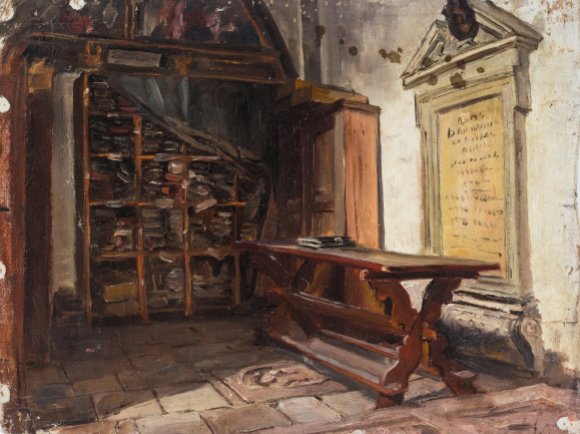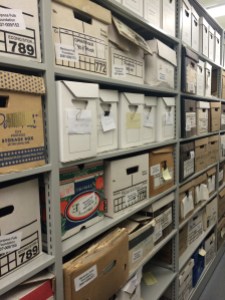
In August of last year, representatives from the Wikimedia community, the Wikimedia Foundation, and the Association of Research Libraries came together to determine common goals and find areas to collaborate. During two days of discussing our respective cultures and roles in the open knowledge landscape, several themes emerged, two of which provide the framework for a new collaborative project with indigenous and tribal communities in the United States and Canada:
- The potential for linked open data to connect information from different, typically disconnected data sources, and mutually enrich libraries’ and Wikipedia content
- An overarching commitment to increase diversity and inclusion in library and Wikipedia culture and content.

This project, Advancing Reconciliation and Social Justice in Libraries through Research Library and Community Collaboration in Wikimedia Projects, uses a case study approach to model community collaboration in the creation of linked open data, in this case related to archival and special collection materials related to Indigenous communities in North America. The project focuses on getting local communities access to documentation related to their own local news and culture. These materials carry much cultural value for these communities, but are frequently under-described, held far from the communities they originated from, are not digitized, and/or suffer from contested or problematic concepts of ownership and custodial history.
Even if the content is accessible, under-description can be reflected in how information is organized and structured. Metadata describing content may be minimal, incorrect, exclusionary, or absent altogether, thereby obscuring the content’s contextual importance. Traditional library and archival practices of description, as well as other power dynamics, reinforce this structural exclusion. This project will contend with these problematic aspects of library and archival professional practice and bring them into conversation with Wikimedia community practices to demonstrate how a more inclusive and community-engaged approach can more accurately tell stories about Indigenous communities’ notable accomplishments and impact in the world.
The records of the Mariposa Folk Festival Foundation at York University contain information about numerous Indigenous artisans, storytellers, musicians, and activists. Cesar Newashish, for example, was a master canoe builder and traditional artisan featured in several Mariposa programs and newsletters, in addition to a film by the National Film Board of Canada. His work can be found in museums and displayed at cultural events all around Canada.
Despite all this, there is little information about Newashish online. One of the few places where you can read about him is on the Atikamekw language version of Wikipedia, using an article created due to the combined work of the Manawan Nation and Wikimedia Canada. Many others do not even have an article or item about them. The Festival archives at York contain rich documentation that could build content in existing entries like that of Newashish’s and others, such as digitized programs with biographical information, newsletters with articles about the practice of artisans, and photographs documenting events, performances and individuals.
To address this overall systemic problem, our project will focus on creating inclusive structured data in archival and manuscript collections to contextualize and highlight relationships among people, and in particular the stories of Indigenous groups.[1]
Goals for the project include:
- Creating and cultivating existing pathways for community participation and agency in the description of archival documents and special collections,
- Encouraging alignment between the development of structured data within the Library, Archives, and Museum (LAM) community and social justice work, and
- The creation of referenced structured data that can be used to connect reliable sources with topics to help justify “notability”[2] in Wikipedia in order to redress a known diversity gap in Wikipedia’s coverage.
To maximize exposure of linkable structured metadata, this project will collaborate within communities to use Wikidata as the global, openly licensed knowledge base where the data can be deposited, queried, and reused.
We will work closely with different communities, community members, archivists, librarians, scholars and students, and the Wikipedia and Wikidata communities—and draw on existing theory and best practices—to find pathways for collaboration and community participation in the work of social justice.
This project is sponsored by the Association of Research Libraries (ARL) and led by Stacy Allison-Cassin at York University Libraries. The project lead team includes Joy Kirchner, Dean, York University Libraries; Anna St. Onge, Archivist, Digital Projects and Outreach; Mark Puente, Director of Diversity and Leadership Programs; and Judy Ruttenberg, Program Director for Strategic Initiatives, Association of Research Libraries.
Stacy Allison-Cassin, W.P. Scott Chair in E-Librarianship, Associate Librarian
Scott Library, York University
Editor’s note: A detailed project page is being developed; we will update this blog post with a hyperlink when it is complete.
Footnotes
- For example, different members of the Tootoosis family of Saskatchewan made numerous appearances at the festival. While Wikidata can be used to document familial relationships and appearances at the festival, there are insufficient properties to appropriately document roles like “elder” or other roles related to Indigenous knowledge structures.
- The English-language Wikipedia’s policy on notability, linked above, is one of many, each developed by individual language communities. You can see its equivalents on Wikidata.

Can you help us translate this article?
In order for this article to reach as many people as possible we would like your help. Can you translate this article to get the message out?
Start translation